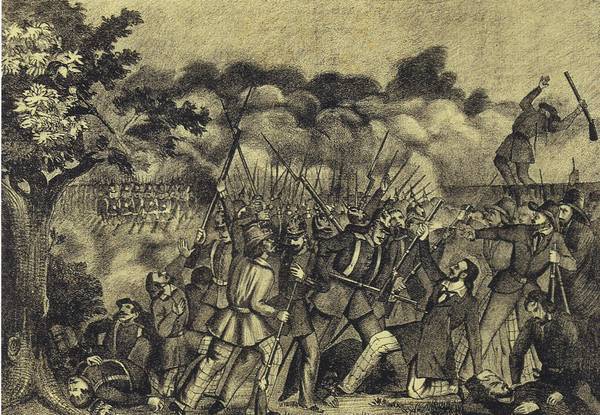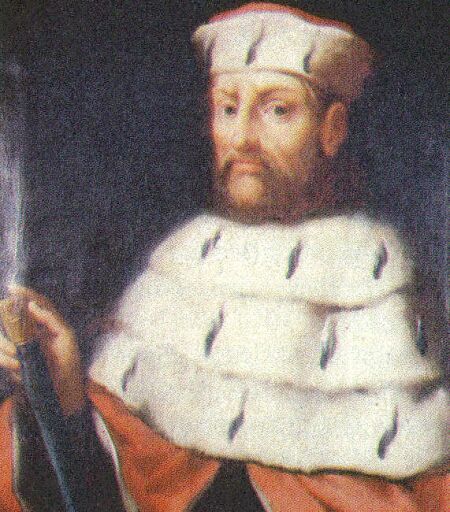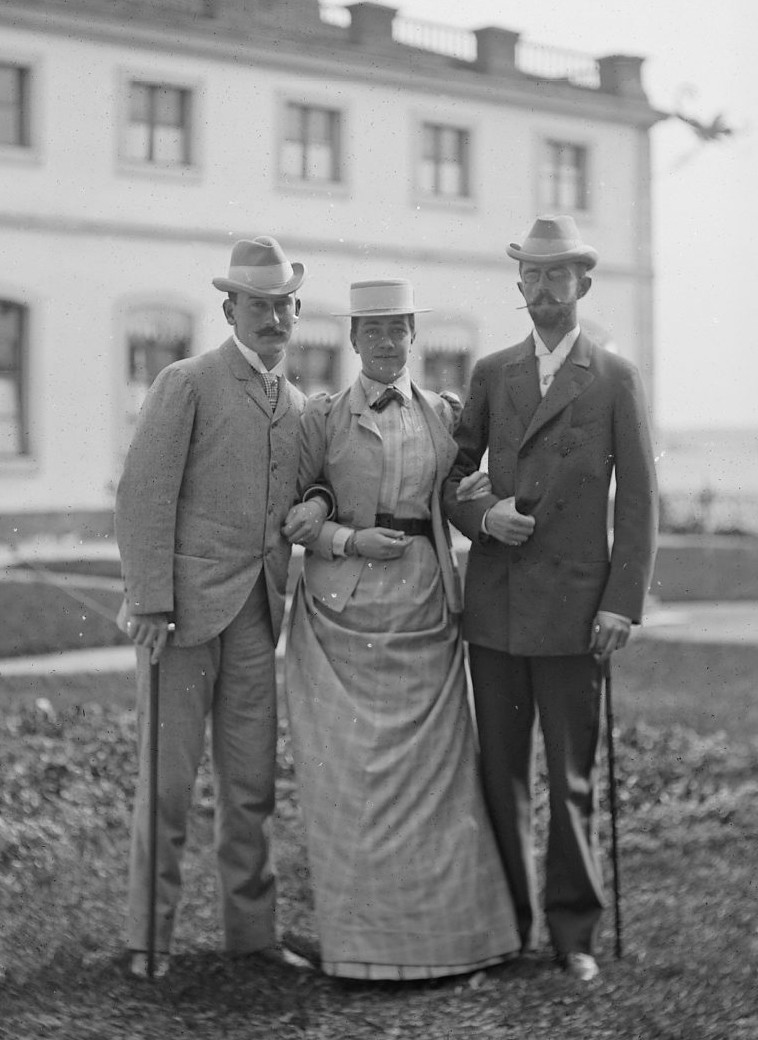|
Reichsverweser
A ''Reichsverweser'' (German pronunciation: ) or imperial regent represented a monarch when there was a vacancy in the throne, such as during a prolonged absence or in the period between the monarch's death and the accession of a successor. The term comes from the Old High German and means "for or in the place of a person". The plural form is the same as the singular. In the Holy Roman Empire, ''Reichsverweser'' were used periodically, but after its dissolution in 1806, the position was occupied only for one relatively short period during the German revolutions of 1848–1849. Although there were discussions about naming a ''Reichsverweser'' at the end of World War I and during the Nazi era, none was ever appointed. Positions similar to ''Reichsverweser'' have been used in Hungary, where they are called , in Finland () and in Sweden (). Holy Roman Empire In the Holy Roman Empire's German and Italian territories, regents were called imperial vicars (). For Germany, the ... [...More Info...] [...Related Items...] OR: [Wikipedia] [Google] [Baidu] |
Archduke John Of Austria
Archduke John of Austria (german: Erzherzog Johann Baptist Joseph Fabian Sebastian von Österreich; 20 January 1782 – 11 May 1859), a member of the House of Habsburg-Lorraine, was an Austrian field marshal and imperial regent (''Reichsverweser'') of the short-lived German Empire during the Revolutions of 1848. Biography John was born in Florence, the thirteenth child of the Habsburg Grand-duke Leopold I of Tuscany (Archduke of Austria and later Emperor) and Maria Louisa of Spain. He was baptized with the name of John Baptist Joseph Fabian Sebastian, after the patron saint of the Tuscan capital. In 1790, Leopold succeeded his brother Joseph II as the Holy Roman Emperor and his family moved from the Grand Duchy of Tuscany to the Imperial court in Vienna. Only two years later, John's elder brother Francis II ascended the Imperial throne. John's native language was Italian, though he learned to speak French and German fluently. Educated by the Swiss historian Johannes von M� ... [...More Info...] [...Related Items...] OR: [Wikipedia] [Google] [Baidu] |
Frankfurt National Assembly
The Frankfurt Parliament (german: Frankfurter Nationalversammlung, literally ''Frankfurt National Assembly'') was the first freely elected parliament for all German states, including the German-populated areas of Austria-Hungary, elected on 1 May 1848 (see German federal election, 1848). The session was held from 18 May 1848 to 31 May 1849, in the Paulskirche at Frankfurt am Main. Its existence was both part of and the result of the "March Revolution" within the states of the German Confederation. After long and controversial debates, the assembly produced the so-called Frankfurt Constitution (''Paulskirchenverfassung'' or St. Paul's Church Constitution, officially the ''Verfassung des Deutschen Reiches'') which proclaimed a German Empire based on the principles of parliamentary democracy. This constitution fulfilled the main demands of the liberal and nationalist movements of the Vormärz and provided a foundation of basic rights, both of which stood in opposition to Metter ... [...More Info...] [...Related Items...] OR: [Wikipedia] [Google] [Baidu] |
Provisorische Zentralgewalt
The Provisorische Zentralgewalt (, ''Provisional Central Power'') was the provisional government of the Frankfurt Parliament (1848–49). Since this all-German national assembly had not been initiated by the German Confederation, it was lacking not only major constitutional bodies, such as a head of state and a government, but also legal legitimation. A modification of the '' Bundesakte'', the constitution of the German Confederation, could have brought about such legitimation, but as it would have required the unanimous support of all 38 signatory states this was practically impossible. Partially for this reason, influential European powers such as France and Russia declined to recognize the Parliament. The delegates on the left wanted to solve this situation by creating a revolutionary parliamentary government, but, on 24 June 1848, the majority (450 – 100) voted for a compromise, the so-called Provisional Central Power. Formation of the Central Power On 24 June 1848, Presi ... [...More Info...] [...Related Items...] OR: [Wikipedia] [Google] [Baidu] |
German Revolutions Of 1848–1849
The German revolutions of 1848–1849 (), the opening phase of which was also called the March Revolution (), were initially part of the Revolutions of 1848 that broke out in many European countries. They were a series of loosely coordinated protests and rebellions in the states of the German Confederation, including the Austrian Empire. The revolutions, which stressed pan-Germanism, demonstrated popular discontent with the traditional, largely autocratic political structure of the thirty-nine independent states of the Confederation that inherited the German territory of the former Holy Roman Empire after its dismantlement as a result of the Napoleonic Wars. This process began in the mid 1840s. The middle-class elements were committed to liberal principles, while the working class sought radical improvements to their working and living conditions. As the middle class and working class components of the Revolution split, the conservative aristocracy defeated it. Liberals were fo ... [...More Info...] [...Related Items...] OR: [Wikipedia] [Google] [Baidu] |
Proclamation Of The Republic In Germany
The Proclamation of the republic in Germany took place twice in Berlin on 9 November 1918, the first at the Reichstag building by Philipp Scheidemann of the Majority Social Democratic Party of Germany (MSPD) and the second a few hours later by Karl Liebknecht, the leader of the Marxist Spartacus League, at the Berlin Palace. In the German Revolution of 1918–1919, during which the Social Democrats and the Spartacists were among the factions that fought to determine the country's future form of government, it was the MSPD and the ideas of the bourgeois-democratic parties that prevailed over the Spartacists and their more radical idea of a soviet-style republic. The German Empire was transformed from a monarchy into a parliamentary-democratic republic with a liberal constitution. Scheidemann's speech marked the point at which the Empire could be said to have ended and the Weimar Republic, the first republic to include the entire German nation-state, to have been born. Backg ... [...More Info...] [...Related Items...] OR: [Wikipedia] [Google] [Baidu] |
Philipp Scheidemann
Philipp Heinrich Scheidemann (26 July 1865 – 29 November 1939) was a German politician of the Social Democratic Party of Germany (SPD). In the first quarter of the 20th century he played a leading role in both his party and in the young Weimar Republic. During the German Revolution of 1918–1919 that broke out after Germany's defeat in World War I, Scheidemann proclaimed a German Republic from a balcony of the Reichstag building. In 1919 he was elected Reich Minister President by the National Assembly meeting in Weimar to write a constitution for the republic. He resigned the office the same year due to a lack of unanimity in the cabinet on whether or not to accept the terms of the Treaty of Versailles. He continued to be a member of the Reichstag until 1933 and served as mayor of his native city of Kassel from 1920 to 1925. After Adolf Hitler and the Nazi Party seized power in 1933, Scheidemann went into exile because he was considered one of the " November criminals" held ... [...More Info...] [...Related Items...] OR: [Wikipedia] [Google] [Baidu] |
Count Palatine Of The Rhine
The counts palatine of Lotharingia /counts palatine of the Rhine /electors of the Palatinate (german: Kurfürst von der Pfalz) ruled some part of Rhine area in the Kingdom of Germany and the Holy Roman Empire from 915 to 1803. The title was a kind of count palatine. Since 1261 (formally 1356), the title holder had become a member of the small group of prince-electors who elected the emperor of the Holy Roman Empire. Since then, the title had been also called as Elector Palatinate Counts palatine of Lotharingia 915–1085 The Palatinate emerged from the County Palatine of Lotharingia which came into existence in the 10th century. * Wigeric of Lotharingia, count of the Bidgau ( 915/916–922) * Godfrey, count of the Jülichgau (c. 940) House of Ezzonen During the 11th century, the Palatinate was dominated by the Ezzonian dynasty, which governed several counties on both banks of the Rhine. These territories were centered around Cologne-Bonn, but extended south to the rivers ... [...More Info...] [...Related Items...] OR: [Wikipedia] [Google] [Baidu] |
Max Von Baden
Maximilian, Margrave of Baden (''Maximilian Alexander Friedrich Wilhelm''; 10 July 1867 – 6 November 1929),Almanach de Gotha. ''Haus Baden (Maison de Bade)''. Justus Perthes, Gotha, 1944, p. 18, (French). also known as Max von Baden, was a German prince, general, and politician. He was heir presumptive to the throne of the Grand Duchy of Baden, and in October and November 1918 briefly served as the last chancellor of the German Empire and minister-president of Prussia. He sued for peace on Germany's behalf at the end of World War I based on U.S. President Woodrow Wilson's Fourteen Points, which included immediately transforming the government into a parliamentary system, by handing over the office of chancellor to SPD Chairman Friedrich Ebert and unilaterally proclaiming the abdication of Emperor Wilhelm II. Both events took place on 9 November 1918, the beginning of the Weimar Republic. Early life Born in Baden-Baden on 10 July 1867, Maximilian was a member of the House of ... [...More Info...] [...Related Items...] OR: [Wikipedia] [Google] [Baidu] |
Friedrich Ebert
Friedrich Ebert (; 4 February 187128 February 1925) was a German politician of the Social Democratic Party of Germany (SPD) and the first president of Germany from 1919 until his death in office in 1925. Ebert was elected leader of the SPD on the death in 1913 of August Bebel. In 1914, shortly after he assumed leadership, the party became deeply divided over Ebert's support of war loans to finance the German war effort in World War I. A moderate social democrat, Ebert was in favour of the ''Burgfrieden'', a political policy that sought to suppress squabbles over domestic issues among political parties during wartime in order to concentrate all forces in society on the successful conclusion of the war effort. He tried to isolate those in the party opposed to the war and advocated a split. Ebert was a pivotal figure in the German Revolution of 1918–19. When Germany became a republic at the end of World War I, he became its first chancellor. His policies at that time were primar ... [...More Info...] [...Related Items...] OR: [Wikipedia] [Google] [Baidu] |
Social Democratic Party Of Germany
The Social Democratic Party of Germany (german: Sozialdemokratische Partei Deutschlands, ; SPD, ) is a centre-left social democratic political party in Germany. It is one of the major parties of contemporary Germany. Saskia Esken has been the party's leader since the 2019 leadership election together with Lars Klingbeil, who joined her in December 2021. After Olaf Scholz was elected chancellor in 2021 the SPD became the leading party of the federal government, which the SPD formed with the Greens and the Free Democratic Party, after the 2021 federal election. The SPD is a member of 11 of the 16 German state governments and is a leading partner in seven of them. The SPD was established in 1863. It was one of the earliest Marxist-influenced parties in the world. From the 1890s through the early 20th century, the SPD was Europe's largest Marxist party, and the most popular political party in Germany. During the First World War, the party split between a pro-war main ... [...More Info...] [...Related Items...] OR: [Wikipedia] [Google] [Baidu] |
Bundesarchiv Bild 183-R04103, Prinz Max Von Baden
The German Federal Archives or Bundesarchiv (BArch) (german: Bundesarchiv) are the National Archives of Germany. They were established at the current location in Koblenz in 1952. They are subordinated to the Federal Commissioner for Culture and the Media ( Claudia Roth since 2021) under the German Chancellery, and before 1998, to the Federal Ministry of the Interior. On 6 December 2008, the Archives donated 100,000 photos to the public, by making them accessible via Wikimedia Commons. History The federal archive for institutions and authorities in Germany, the first precursor to the present-day Federal Archives, was established in Potsdam, Brandenburg in 1919, a later date than in other European countries. This national archive documented German government dating from the founding of the North German Confederation in 1867. It also included material from the older German Confederation and the Imperial Chamber Court. The oldest documents in this collection dated back to the year ... [...More Info...] [...Related Items...] OR: [Wikipedia] [Google] [Baidu] |
Constitution Of The German Empire
The Constitution of the German Empire (german: Verfassung des Deutschen Reiches) was the basic law of the German Empire of 1871-1918, from 16 April 1871, coming into effect on 4 May 1871. German historians often refer to it as Bismarck's imperial constitution, in German the ''Bismarcksche Reichsverfassung'' (BRV). According to the constitution, the empire was a federation (federally organised national state) of 25 German states under the permanent presidency of Prussia, the largest and most powerful state. The presidency of the confederation ('' Bundespräsidium'') was a hereditary office of the King of Prussia, who had the title of German Emperor. The Emperor appointed the Chancellor, the head of government and chairman of the '' Bundesrat'', the council of representatives of the German states. Laws were enacted by the ''Bundesrat'' and the '' Reichstag'', the Imperial Diet elected by male Germans above the age of 25 years. The constitution followed an earlier constitution of ... [...More Info...] [...Related Items...] OR: [Wikipedia] [Google] [Baidu] |




.jpg)


